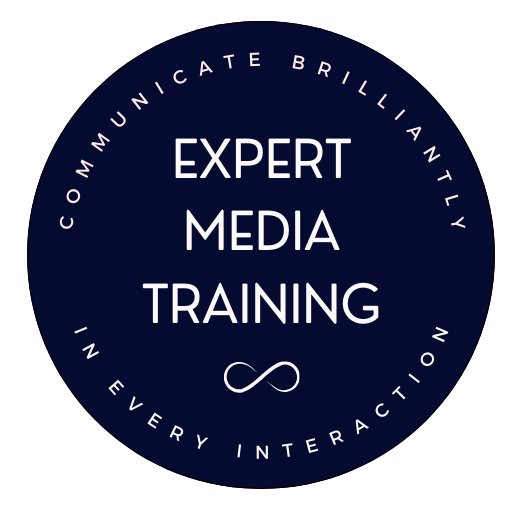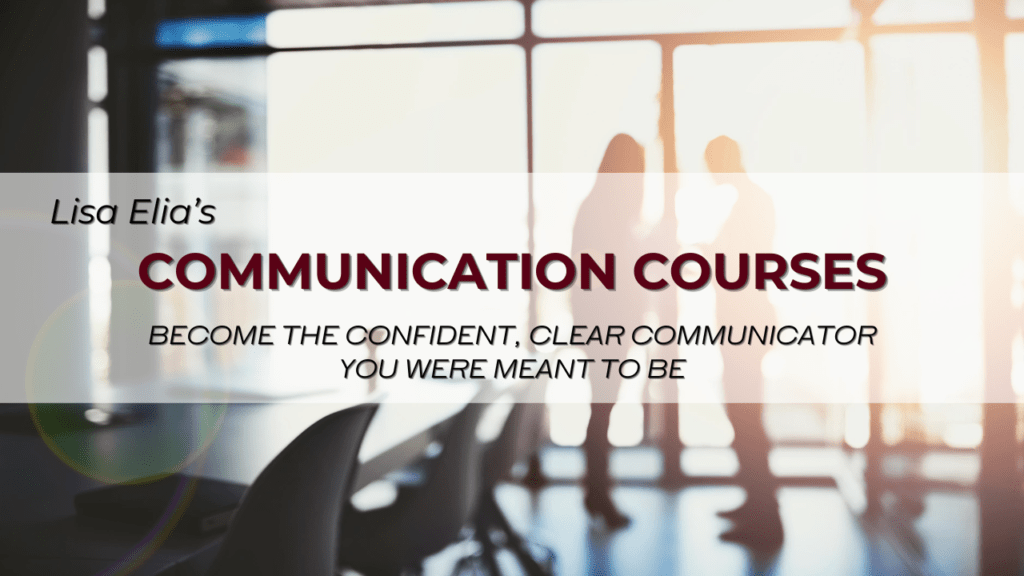Saturday, March 2, 2013 | Media Relations, Messaging

Are you asking yourself, “should I write a letter to the editor?”
If you want to be seen as a thought leader, one good way to gain visibility is to write a letter to the editor of a newspaper or other print media outlets, in the hopes of it being published, of course.
Letters to the editor are generally meant to be in response to something that a media outlet has published.
People write letters to the editor in order to express opinions in support of, or in opposition to, an article that was published in the editor’s media outlet. Some people write letters to the editor to expand upon information that was shared within an article that the outlet published.
Here are some considerations to help you determine whether or not writing a letter to the editor is a good strategy for you:
Who are the readers of the publication? Are they members of your target audience?
Is the publication prestigious? If so, even if the readers are not in your target audience, a published letter to the editor could be something impressive to add to your press kit and website.
Do you feel strongly about something that was published in the media outlet? If you have a strong opinion, writing about it will be much easier than if you’re solely out to get published.
Do you have expertise or experience that relates to the topic in the article about which you plan to write the letter? If so, establish your credibility by sharing a concise summary of your background. If you hold degrees or certifications or if you have a significant amount of experience in a field that relates to the topic, be sure to emphasize this. This can greatly increase your chances of having your letter published.
Would you be able to handle negative comments or criticism in response to your letter, if it is published? Opinions are like noses: everyone has one. If you want to share yours, know that others may disagree, and they may not always be polite about it.
As with any strategy, consider your resources of time and energy and the potential return on investment of your time and energy.
If you enjoyed this post on writing a letter to the editor, you may also enjoy these blog posts:
How to Communicate with Maturity, Tips from a Media Trainer and Communication Expert
How to Avoid Using Jargon in Media Interviews and Communications – Tips from a Media Trainer
I’m Just a… And Other Undermining Statements to Avoid – Communication Tips from a Media Trainer
Authenticity and Your Message – a Note from a Media Trainer
Friday, February 15, 2013 | Communication, Crisis Communication, Media Relations, Messaging

In an age where photos and graphics are used to tell stories, it’s interesting how words, and wording, are no less important than they were in the past.
Consider how a quote can make its way around the Internet, crossing time zones and continents.
Make it funny and people can’t wait to share it.
Your voice as a writer and speaker emerges and continues to develop over time.
What you choose NOT to say is just as informative of your brand as what you do say.
Is complaining part of your brand?
Is talking about how tired you are part of your brand?
Probably not.
The way you present yourself to others and the way you treat others, with your pen and your presence, shapes your brand.
Do you think people seem smarter when they’re putting down others?
Do you love it when you read something that shows someone has passed from confidence to arrogance?
Probably not.
If your words are not perfectly composed, do you want people to pin you to a wall for it?
When you’re speaking in public, do you want people to laugh if you stumble?
Probably not.
It makes it easy to know what others want when you look at things this way.
This is what it comes down to:
Humor is welcomed by most, understood by some, and disdained by few.
Hubris is disdained by most, understood by all, and welcomed by few.
Hiccups happen–figuratively in our writing, or literally, when we’re speaking. We’re not always going to be perfect. How you handle hiccups is what matters.
Go back to the humor, perhaps.
As you become more publicly known, you can still be yourself, but show the world the best version of yourself.
Want additional tips, thoughts and advice on wording? Check out these blog posts:
I’m Just a… And Other Undermining Statements to Avoid – Communication Tips from a Media Trainer
How to Avoid Using Jargon in Media Interviews and Communications – Tips from a Media Trainer
Authenticity and Your Message – a Note from a Media Trainer
Glossary of Media Interview Terms – from Los Angeles Media Trainer Lisa Elia
Thursday, February 14, 2013 | Messaging, Public Speaking, Social Media
What does it mean to have influence?

Influence is not controlling, nor is it pushy.
To have influence with others, you have usually earned it through your experience, integrity, knowledge and willingness to share your wisdom.
When you are influential, you communicate in a way that makes people want to listen to you. This comes through in your body language, your written communication and your speech.
You have influence because you have a sense of maturity about you, and this doesn’t mean you’re any certain age. You could be 20 and still have the maturity to lead others.
To influence others, you show others that you’re enjoying your life. People want what you’re having.
You have the ability to get things done, and this is why people listen to you.
You are focused and on a mission to create the life you want and to help others create the lives they want.
You know that to make great changes, you want to reach more people with your message and your creations.
My challenge to you is this: list 3 things you can do over the next 3 days to increase your influence.
Here are some ideas:
1. Share more tips and/or inspirational thoughts on social media.
2. Look for new groups to join on social media and join the conversation.
3. Think of 5 new important messages you want to share.
4. Add a press room and/or speaking room to your website.
5. Offer to speak at a gathering where people need your information or would want to learn about your product.
6. Look at HARO leads and submit yourself to be considered for media interviews with some of the journalists and TV and radio producers who have posted queries.
7. Create some videos in which you share tips or product information and post them on several video distribution sites, your social media networks and your website.
Please feel free to share what you intend to do, or come back in a few days and share what you’ve done, to have greater influence.
For more tips on how to increase influence by sharing your message, creating an online press room and more, read these blog posts:
Authenticity and Your Message – a Note from a Media Trainer
https://expertmediatraining.com/authenticity-message-from-media-trainer
Media Training Tips on The Language of Your Brand in Media Interviews
https://expertmediatraining.com/brand-language-media-training-tips
How to Create an Online Press Room That the Media Will Love, from a Los Angeles Media Trainer
https://expertmediatraining.com/online-press-room-tips-from-media-trainer/
Social Media Tips to Create Relationships with the Press
https://expertmediatraining.com/social-media-tips-from-media-trainer/
Monday, January 21, 2013 | Communication, Messaging, Public Speaking
Tips on How to Deliver a Powerful Message from a Media Trainer
Martin Luther King, Jr. changed the course of history, not only in the U.S., but around the world. His words of inspiration and powerful speeches are still shared on a daily basis, quite often by people who were not even around when he was alive, because he knew how to deliver a powerful message.
What makes Martin Luther King, Jr. so quotable and memorable is a combination of the content of his speeches, his vocal style and his body language.
Anyone who is trying to create an impact in the world can learn from this man, but you must do it in your own way. While many might argue that the world needs more people just like Martin Luther King, Jr., the world also needs people just like you.
Some things to emulate from the good Dr. King:
Message delivery tip #1: Speak your truth.
“A genuine leader is not a searcher for consensus but a molder of consensus.” Martin Luther King, Jr.
Message delivery tip #2: Choose your words carefully and craft your message thoughtfully.
Dr. King’s words were like poetry, which is one of the reasons he is so quotable.
“The ultimate measure of a man is not where he stands in moments of comfort and convenience, but where he stands at times of challenge and controversy.” Martin Luther King, Jr.
“Our scientific power has outrun our spiritual power. We have guided missiles and misguided men.” Martin Luther King, Jr.
See what I mean? Poetry.
Message delivery tip #3: Inspire people with your message delivery.
Few speeches are as inspiring as the “I Have a Dream” speech. If you’ve never heard it, watch in on YouTube.
Did you notice how Dr. King paused and varied his vocal tone throughout his speech?
Technical elements to emulate in your message delivery:
- Don’t be afraid to use pauses to make points.
- Vary the inflection and even the volume of your voice to keep people engaged and to move the audience.
- Keep your posture strong, but not stiff and use eye contact to connect with your audience.
Of course, there’s much more to message delivery, but this will help you gain awareness of what you may want to work on and what already do beautifully.
Now that you’ve learned a few tips on how to deliver a powerful message, would you like some additional media training resources and tips?
If so, visit these links on our site:
What is Influence and How Do You Increase It? Tips from a Media Trainer
Authenticity and Your Message – a Note from a Media Trainer
This post was written by Lisa Elia, a Los Angeles-based media trainer, presentation trainer, communication expert, and speaker. She trains clients for media interviews, speeches, investor presentations, and promotional videos. With more than 20 years of experience, Lisa has trained clients for interviews with The Today Show, Good Morning America, The Wall Street Journal, and hundreds of other outlets. Lisa has been interviewed and shared her expertise with national media outlets that include Inc., Fox News, Entertainment Tonight, E! Entertainment, and many others. To discuss your training needs, contact the Expert Media Training office at 310-479-0217.
Monday, January 14, 2013 | Media Training
Have you put off seeking press coverage because you don’t feel ready or you don’t know how to present yourself to the media?
This is a valid concern, and the following information will help you to prepare yourself.
Here are three things you need to “be” before you begin, which will help you learn how to present yourself to the media:
1. Be willing to shape your messaging to suit the needs of the media. There is a manner in which media outlets capture their audience’s attention. You must speak their language.
2. Be open to setting up a simple system that will make it easier to receive an abundance of new business inquiries and product orders.
3. Be responsive. You must respond to feedback and requests from the media promptly.
Now that you have tips on how to present yourself to the media, go deeper.
Here are some helpful links:
Media Training and Presentation Training Videos — They’re filled with tips.
Top Media Interview and Communication Tips
Glossary of Media Interview Terms
Prepare for TV Interviews Before You Book One
Friday, November 2, 2012 | Interview Skills, Media Training, Public Speaking
“Committing to the moment” is something almost any acting student hears over and over again. However, anyone who speaks publicly or who is interviewed by the media can also benefit from creating a practice to help them commit to the moment.
Ideally, in any interview or presentation situation, you want to be completely engaged. The moment you stop listening or being fully present, even for a nanosecond, you risk missing an important point or not answering a question as eloquently as you’d like.
When you truly commit to the moment, with the understanding that every time you are being interviewed by the media or speaking to a group that is your only opportunity to reach your audience with your message at that precise time in history, you will be effective and you will have few regrets.
The ability to commit to the moment generally comes from your habits and preparation. Consider the following:
How do you clear your head and focus on the interview or presentation, without allowing your mind to wander on to other matters awaiting you at the office or elsewhere?
Do you have a ritual to help you shift your attention from whatever you were doing prior to an interview and onto the interview itself?
Do you maintain daily habits that keep your mind sharp and your energy up?
I recommend practicing being fully committed to the moment during situations where the stakes are not very high, such as a casual staff meeting or even when you’re walking down the street or buying a latte. If you’re generally a multi-tasker, it may take some concentrated effort to really listen and connect with the barista or to notice the sights, sounds and smells around you. Doing this on a regular basis will help you become more aware of the sensation of being fully present.
Now that you have tips on how to commit to the moment, do you need additional media training information? Check out these blog posts:
What Are We Saving It For? A Media Trainer’s Thoughts on Committing to the Moment
Top 5 Mistakes to Avoid in Media Interviews
Top 10 Media Relations Tips – Media Training Tips from a Media Trainer
Media Training Tips on The Language of Your Brand in Media Interviews
For additional communication tips, check out my Confident and Clear Communication program.
Thursday, November 1, 2012 | Crisis Communication, Media Relations, Media Training
If your company has been affected by Hurricane Sandy, create a communications plan to address the concerns of each target audience–employees, clients and customers, investors, shareholders. Address how the company is taking measures to restore strength and make up for lost income and productivity or property damage.
People want to experience a company’s awareness and receive assurance in times like these.
For more detailed information on creating a crisis communications plan, read our previous blog post on this topic.
To arrange a free consultation, call us at 310-479-0217.
Or, you can email us at team@expertmediatraining.com
Tuesday, October 2, 2012 | Media Relations, Media Training, Messaging, On-camera
 With the increase in opportunities for people to be interviewed by a variety of outlets, more people are becoming aware of the need for media training. As more people begin to make their own videos they may also see that it’s not always as easy as it looks to deliver content in a smooth, engaging way. Add to this the pressure of being asked questions by an inquisitive reporter and you could have a nerve-racking situation. BUT, that doesn’t have to be the case.
With the increase in opportunities for people to be interviewed by a variety of outlets, more people are becoming aware of the need for media training. As more people begin to make their own videos they may also see that it’s not always as easy as it looks to deliver content in a smooth, engaging way. Add to this the pressure of being asked questions by an inquisitive reporter and you could have a nerve-racking situation. BUT, that doesn’t have to be the case.
Like anything else you want to master, learning to handle interviews well just takes practice and guidance. Being a great speaker from the stage or being comfortable making your own promotional videos is not the same as being ready for a media interview.
Here’s my analogy. Rocking out on the dance floor is to the dancing the tango beautifully, what creating your own videos well is to being great in a media interview. To explain: you may be someone who’s comfortable and even looks good freestyling on the dance floor (like creating your own videos). But, would you be able to do the tango without lessons and practice? The tango is precise and intricate and it takes practice to make it smooth and crisp (like being able to answer questions concisely, without hesitancy and with great energy).
Just as you would get training if you wanted to do the tango well, you should get media training if you want to interview well.
You may have seen my other media interview video tips, and this one will give you more to think about.
Watch the media interview video below for some quick media training tips.
Here are more resources you can access on our site.
Frequently Asked Questions about Media Training
https://expertmediatraining.com/faqs-about-media-training/
Media Interview Checklist from a Los Angeles Media Trainer
https://expertmediatraining.com/media-interview-checklist-from-a-media-trainer/
How to Create an Online Press Room That the Media Will Love
https://expertmediatraining.com/online-press-room-tips-from-media-trainer/
Prepare for TV Interviews BEFORE You Book One – Tips from an LA Media Trainer and Spokesperson
https://expertmediatraining.com/prepare-for-tv-interviews-media-trainer-tips/
Monday, September 17, 2012 | Media Relations, Messaging
Use these tips to learn how to become an expert people trust.
1. Educate yourself.
Even if you hold an advanced degree in your field, there is always more to learn in your own field and in other arenas that will help you become more creative and resourceful. This will automatically spill into your communications.
2. Get the facts.
Add facts and figures to some of your articles to substantiate your opinions, but only include information from reputable, high-level sources, such as top universities, research institutions or government agencies that provide solid research.
3. Know your industry.
Keep up with the trends and discussions occurring in your industry so you can comment on them when asked by potential clients, colleagues and members of the media.
4. Keep up with technology.

Know specifically how current events and technological developments affect your industry. For example, does new technology influence the products or services you can provide or the way you deliver them? How do new developments affect your followers?
5. Have an opinion.
Quite often people are so afraid of alienating some people or not appealing to everyone that they don’t commit to an opinion. However, you will attract “your tribe”, those people who truly resonate with you, ONLY when you clearly state your opinion.
6. Play nicely with others.
Mingle with other experts in your field so they consider you when seeking colleagues to share stages with them or to refer to the media or potential clients they cannot or choose not to serve.
7. Be the solution.
Don’t merely state problems. Provide concrete solutions, tips and resources to help solve those problems.
8. Anticipate their needs.
It’s important to not only stay in touch with the needs of your followers/your audience, but to know what they need before they know they need it. This is how you can advise them on mistakes to avoid and shortcuts to take to help them succeed more easily.
9. Don’t be a stranger.
Whether you share information through your blog, Facebook, a newspaper column or TV segments, keep giving your audience more good information. Don’t tease them with some golden nuggets of wisdom and then disappear for months on end…unless you’re doing something amazing for humanity in some remote place with no Internet access.
10. Get fresh.
Add something new and fresh to the world conversation. People are always looking for creative approaches to old problems, new opportunities that they haven’t considered and hope that there are untraveled roads to be traveled. Show them the way.
Now that you know how to become an expert, do you need tips on authenticity, messaging or branding?
Read the blog posts below.
Authenticity and Your Message – a Note from a Media Trainer
https://expertmediatraining.com/authenticity-message-from-media-trainer
Media Training Tips on The Language of Your Brand in Media Interviews
https://expertmediatraining.com/brand-language-media-training-tips
If you want to share tips on how to become an expert with your friends, you can do so by using the share buttons below.
Wednesday, September 12, 2012 | Media Relations, Media Training, Messaging, On-camera
Many years ago, when I was working as a publicist, I had a client who INSISTED that she didn’t need media training because she had been interviewed by the press and had created some of her own promotional videos. When I booked her on an NBC segment, she was unaware that a second camera was on her while the interviewer spoke. What was caught on camera? It was my client looking down at the ground, appearing disengaged. NOT GOOD! Easily avoidable media interview mistakes like this are the reason I now insist on media training my clients, or at least doing a mock interview or two with them, to make sure they’re truly camera-ready and media-ready.
If you plan or hope to be interviewed by media outlets, from the smallest online radio shows to the largest national TV shows, I encourage you to invest in media training from an experienced pro, so that you become aware of media interview mistakes that can be avoided. In the meantime, this article will help you avoid some of the most common mistakes people make in media interviews.
These are five media interview mistakes to avoid:
Media Interview Mistake # 1: Assuming you’re “a natural” because you’re a good public speaker or you’re good at making your own promotional videos. When you control the situation, it’s much easier to shine. When you have the pressure of answering questions quickly with cameras on you or a live audience listening in, it can be much more challenging and can fluster even the most confident people.
Tip: Practice being interviewed by a challenging interviewer. (When I conduct media training sessions, one of the many things I do is to play “jerky reporter” and ask tough, sometimes obnoxiously rude questions and then I help you develop answers and strategies to deal with this type of situation in the real world.)
Media Interview Mistake # 2: Providing long, meandering answers to questions. Many TV and radio interviews are very brief, lasting just a few minutes. So, you have to provide concise, meaningful responses to questions. Brevity is important in print interviews, too. A magazine editor I know said that one interview subject she spoke with went on and on about himself for so long during a telephone interview that she stopped taking notes and started cleaning her house…while he was still blabbing on about himself. Don’t be THAT person.
Tip: Get your messaging down. Think of answers to the most common questions you think you will get and rehearse them, but not word-for-word; just get the content down. (Messaging is one of the first things I work with clients to develop. It informs everything, from the way we develop your press kit materials, to the verbiage used on your web site, to the way you introduce yourself to people.)
Media Interview Mistake # 3: Not knowing enough about the media outlet and its audience. The more you understand the media outlet you’re being interviewed for, the better able you will be to communicate with the interviewer or host appropriately and provide examples or anecdotes that suit the outlet’s audience.
Tip: Research the media outlet and the interviewer prior to your interview. If you’re going to be on a TV show, watch it. If you’re going to be on a radio show that you’re not able to access, spend time on the station’s web site to get a feel for it. Read any print publication where you will be interviewed and, in particular, read articles authored by the person who will be interviewing you.
Media Interview Mistake #4: Trying to be funny when you’re not. Not everyone has the gift of good comedic delivery. While humor is welcomed in many interviews, don’t try to force it because it won’t come off well.
Tip: Be the best version of yourself. Don’t try to be someone you’re not. Sometimes a straightforward, clear interview is EXACTLY what the outlet wants and EXACTLY what will attract potential clients or speaker bookers or sponsors who may be watching or listening to you.
Media Interview Mistake #5: Being unaware of the camera. You can’t just BE on camera and forget about, although the most polished show hosts and guests make it look that way.
Tip: Ask how much of your body is included in the shot and where the camera operator wants you to look. Sometimes you will be asked to look at the camera, sometimes next to it and sometimes somewhere else. It varies from show to show.
There’s much more to share about techniques to control your nerves and manage your energy, how to deliver your message in pyramid form, how to incorporate a call to action and lots of other techniques. However, true media training is experiential. There’s nothing like being in the process and learning in a hands-on (or on-camera) way.
By dodging these media interview mistakes, your interviews will run smoothly, and you’ll be more likely to be interviewed again!
Share these media interview mistakes to avoid on social media, by using the share buttons below.
Now that you know some of the most common media interview mistakes to avoid, do you need additional media training resources?
Here are some resources that you can access on our site.
Prepare for TV Interviews BEFORE You Book One
https://expertmediatraining.com/prepare-for-tv-interviews-media-trainer-tips/
Media Interview Checklist
https://expertmediatraining.com/media-interview-checklist-from-a-media-trainer/
Media Training Resources
https://expertmediatraining.com/media-training-resources/
Top 10 Media Relations Tips – Media Training Tips
https://expertmediatraining.com/media-training-tips-for-good-media-relations/
Frequently Asked Questions about Media Training
https://expertmediatraining.com/faqs-about-media-training/
If all the world’s a stage, own it while you’re on it!







